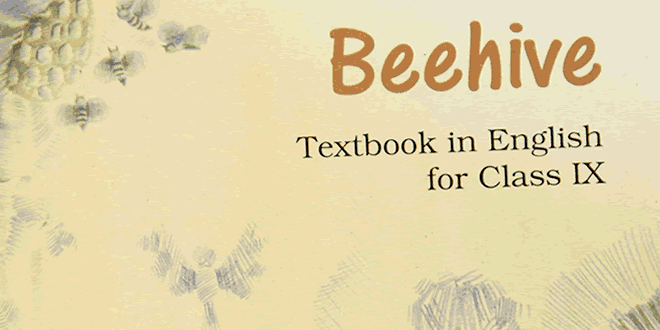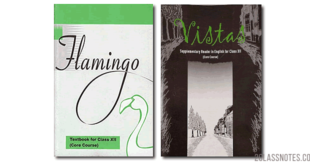A Slumber Did My Spirit Seal: NCERT 9th Class CBSE English Beehive Chapter 10
Question – A Slumber Did My Spirit Seal: “A slumber did my spirit seal”, says the poet. That is, a deep sleep ‘closed off’ his soul (or mind). How does the poet react to his loved one’s death? Does he feel deep sense of grief? Or does he feel a great peace?
Answer – A Slumber Did My Spirit Seal: The poet is shocked and surprised at the death of his loved one. It feels painful. Death does not make anyone feel good. It is always associated with misery.
Question: The passing of time will no longer affect her, says the poet. Which lines of the poem say this?
Answer: “She seemed a thing that could not feel the touch of earthly years”.
Question: How does the poet imagine her to be, after death? Does he think of her as a person living in a very happy state (a ‘heaven’)? Or does he see her now as a part of nature? In which lines of the poem do you find your answer?
Answer: The poet imagines her to be an inseparable part of nature. No, he does not think so because ‘heaven’ is not a dead thing. It is shown in the line ‘Rolled round in earth’s diurnal course / With rocks and stones and trees’.
Short answer type questions
Question: What happened to the poet’s beloved?
Answer: The poet’s beloved was dead. She was not alive now. The poet remembers her beloved through the poem. Her death has sealed or made her spirit peaceful. Her death has ended all human fears. She was no more and was beyond the mortal earthly touch.
Question: How does she become an inseparable part of nature?
Answer: She becomes an integral part of nature. She is trapped under the surface of the earth and is rolled round in earth’s course with rocks, stones and trees. She is rolling round in earth’s diurnal course. Actually, she has become one with nature or inseparable part of it.
Question: Is she visible? If not, why not?
Answer: No, she is not visible because she is no more. She cannot be perceived with eyes. The poet can visualize her through his soul. She has become a part of the earth’s diurnal course. She has become one with rocks, stones and trees.
Question: How will time not affect the poet’s beloved?
Question: The poet’s beloved is dead and a dead thing becomes immortal. It is a universally accepted fact that immortality is not affected by time or the physical world. She cannot hear or see. She has gone beyond the physical world. She is beyond the touch of earthly years now. She has become a part of nature’s diurnal course.
Question: How does the poet react to his beloved’s death?
Answer: The death of the poet’s beloved is so sudden and unexpected that his mind as well as his body seems to be closed off. A deep slumber has taken hold over him. His spirit seems to be sealed. He has lost touch of earthly consciousness. Her death has cut him off from all earthly fears. A deep slumber has engulfed all his wordly feelings.
Question: How does the poet imagine her beloved to after her sudden and untimely death?
Answer: Now his beloved is no more a part of this mortal world. She would be beyond the touch of earthly years. She is beyond the action and reaction of all five senses and the earthly body. However, she will become an inseparable part of nature. She will be rolling round in earth’s diurnal course. She will become one with rocks, stones and trees.
Question: Give a brief analysis of the poem ‘A Slumber Did My Spirit Seal’ in your own words.
Answer: In the poem ‘A Slumber Did My Spirit Seal’ the poet describes his beloved after her death. In the first stanza, the poet says that the death of his beloved made him very depressed. He says that his beloved has now become a non-living thing which cannot feel the touch of anything on the earth. In the second stanza, he says that his beloved has no motion. She can neither hear any sound nor can she see any thing. She is trapped under the earth and revolves with rocks, stones and trees.
Question: How does the poet react to the untimely, sudden and shocking death of his beloved? What does he imagine her to be after her death?
Answer: The sudden and untimely death of his beloved leaves the poet stunned. It is not easy to express the poet’s feelings in words. Actually, a deep slumber ‘sealed’ his spirit. He fell as if he were in deep sleep. This deep sleep seems to have closed off his body and soul. She is no more and will not be affected by the earthly years as well as by the touch of five physical senses. She will feel no motion, movement or force. Nor will be able to hear or see. Yet she will become an in separable part of nature. Physical death doesn’t mean that will be condemned to an everlasting death. No, she will roll round in earth’s diurnal course. She will become one with rocks, stones and trees.
Question: All of us know that nothing is ours permanently, then why do we suffer so much to have more and more?
Answer: It is true that nothing belongs to us permanently because one day we have to leave all the things on the earth. Nevertheless, people crave for more wealth, fame, knowledge, beauty and even commit crime, because this is human nature. We cannot separate ourselves from such things. If we give up our greed to have more and more, the world would be a much better place to live in. People would not go to extremes to achieve something.
 Class Notes NCERT Solutions for CBSE Students
Class Notes NCERT Solutions for CBSE Students




